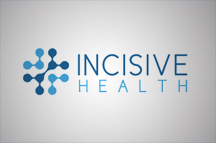Focused on the Premier League big kick off, not on Twitter? Here’s our summary of the highlights you might have missed.
-
 Our research found that half the public now support paying more income tax to support the NHS. Will politicians catch up with public opinion?
Our research found that half the public now support paying more income tax to support the NHS. Will politicians catch up with public opinion? - The Guardian story on our NHS income tax research has provoked a storm of debate, prompting around 1,000 comments on the article.
- Some other reaction to our research from Nick Pearce and Labour List.
- Good blog by Hugh Pym on the increasing profile of mental health care.
- Meanwhile research by Shaun Lintern for the HSJ shows cuts in mental health beds.
- Good tips from the Men’s Health Forum on how to help a friend in need.
- A heart-wrenching must read by James Titcombe for anyone interested in safety or patient-centred care.
- Doctors can write more than prescriptions: the best books by doctors.
- How attitudes have changed in 50 years. Cigarettes used to be promoted as being ‘used by doctors’.
- An American doctor’s experience of an NHS A&E.
- Gorillas and humans react in a similar fashion to a cold stethoscope.
- Not all health providers have quite yet embraced social media – take a look at this GP surgery.
- The contraceptive choices of women over eight generations.
- The number of patients on NHS waiting lists, by year.
- Is Wikipedia trusted more than journalists.
From America:
- Changes over time in attitudes of Americans to evolution.
- Instant replay: a ‘quarterback’s’ view of care coordination and why it must encompass multiple care settings.
- Why do kids on Medicaid visit emergency rooms more often?
And finally…
- A brief introduction to academic writing.
Incisive Health is the new force in health policy and communications. In an NHS environment that is noisy, changing rapidly and where decision-makers are under intense pressure, policy communications need to be incisive to make an impact. We know how to cut through the noise and competing priorities to deliver results that enhance our clients' businesses and reputations and – ultimately – improve healthcare for patients.














